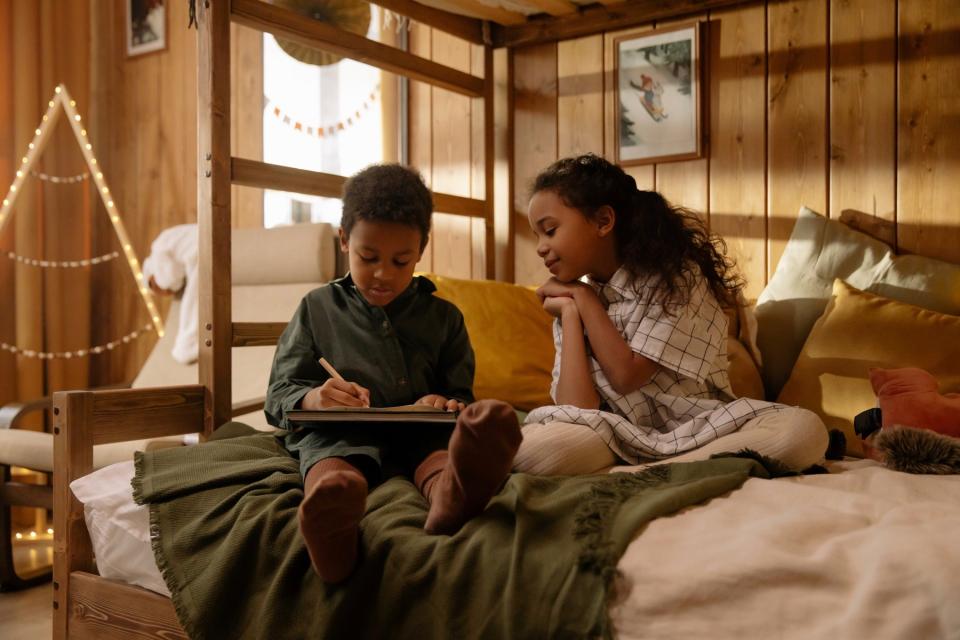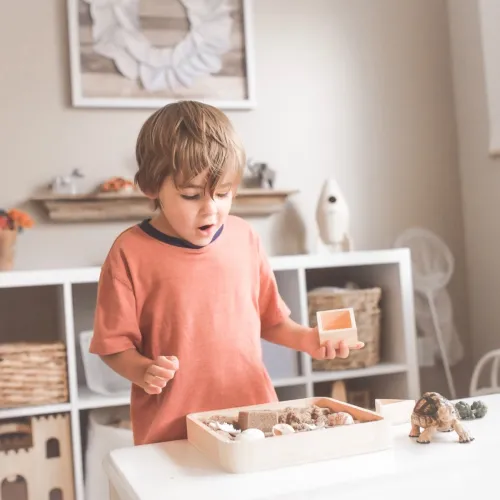Long Term Effects of Divorce on Children: Protecting Your Child Through Divorce

Children are often affected by the divorce process. Naturally, parents become very concerned with how such conflict and separation will impact their children. Unfortunately, divorce may provoke a battleground of intensified emotions, anxiety, and heartache; thus, it is essential to take conscious and proactive measures to reduce the exposure of conflict and trauma on children.
How Divorce Can Impact Children
Many parents do their best to shield children from arguments and any upsetting aspects of divorce. Nevertheless, even when parents think they have protected their children from seeing the harder parts of divorce, children are very perceptive and are still affected by the most subtle disagreements or tense conversations.
Children are also particularly attuned to notice when their parents are becoming upset and stressed, which may bring about similar feelings within themselves. Other situations that may cause stress for a child include ceasing to cohabitate with both parents, having to move to a new home, or adapting to living in two homes.
At some point, they may have to accept new people into their family, like a parent's new partner, step-siblings, or half-siblings. These large lifestyle changes are a lot for a young mind to tackle and fraught with emotional junctures. Divorce can lead children to question themselves, develop a fear of the unknown, and sometimes induce feelings of guilt that perhaps their behaviour contributed to or is responsible for their parents’ divorce.
When parents become so consumed with anger, hurt, or conflict towards their partner, they may miss indicators that their children are approaching a road of self-doubt. A child witnessing one or both parents in a state of panic, anxiety, or sadness can have profound and long-lasting effects on their mental and physical health.
However, there are ways to mitigate the intense impacts of these situations, as well as ways parents can avoid putting their children in these scenarios in the first place. It is paramount that parents learn and utilise tools that will help them deal with sensitive issues calmly and discreetly, and with the intention of resolving conflict swiftly. Studies show that children with parents who cooperate during separation are less likely to feel stressed, more likely to feel confident, and are at peace despite a shift in the family unit.
Ways to Mitigate the Impact of Divorce on Children
It should be noted that everyone copes with divorce differently, so children may react in a multitude of ways to their parents’ split. Reactions may also vary depending on the stage of the divorce, so it is important to lay the groundwork to set your children up for success.
Share the news with your family all together
When initially sharing the news of divorce with your family, refrain from telling each child individually. Instead, tell all your children at once so that the family unit can have a conversation about divorce and what it looks like. If the family is particularly close to any relatives or friends who can act as support during this encounter, they can also make children feel supported and as though their network is still intact.
During this conversation, it is important to be honest while being mindful of each child’s age, maturity, and temperament. Depending on the child, they may have an array of questions and, when given answers, are likely to feel more secure than if they were left in the unknown. Be ready to discuss how the idea of divorce makes them feel and support them in coming up with concrete ideas on how to manage those feelings when needed. One of the most valuable things a parent can provide to their child is reassurance; reassurance that they will always be loved and cared for by both of their parents.
Keep your children informed of what they need to know
As mediation or litigation continues and parents have decided what life will look like for the family post-divorce, lay out what it will be like for the children. What days will they spend with each parent? Will one parent be moving into a new house while the other stays in the current one? While trying not to overload them with too much information, give them all the most important details and then allow them space to ask their questions when they are ready.
Amid all the changes, remember to remind them of the constants–the things that won’t be changing. Children thrive when they have stability and consistency built into their lives, and even though it’ll be an adjustment, a great way to help them settle into the new routine is to minimise disruptions.
Shield your children from heated conversations and commentary
Separating from a partner when there are children involved can introduce a complex set of emotions and concerns for a parent. Nevertheless, it is important to address those emotions, thoughts, and actions without putting children in the middle. Even if one partner feels it’s the other person’s fault for breaking up the marriage and vice versa, it's important not to blame the other parent in front of the children. Children look up to and adore both their parents, so pitting them against the other parent will only create resentment and pain for a child.
Although separating may bring up feelings of pain, anger, and sadness, who’s at fault for the demise of the marriage is of no importance when it comes to talking to children. The hope is that every decision is not only in the parents’ best interest but the best interest of the children so that they can continue to have healthy, loving relationships with both of their parents.
Keeping visible conflict, heated discussions and legal talk away from the kids is imperative, but bottling up those emotions and discussions is of no use either. Instead, relying on a mediator, lawyer, family, friends, and therapist to release any negativity and blame may provide the needed release and support parents need.
Although divorce can bring up a lot for parents, it is clear it can also have an impact on children. Stress, anxiety, and depression manifest differently in children than in adults; pay attention to any changes in their words, moods, and behaviours. Consulting with other adults in a child’s life like teachers, doctors, or a child therapist may also help with recognizing any signs of distress as well as provide guidance on how to handle specific concerns.
Strive to demonstrate peaceful co-parenting to your children
One of the greatest things a parent can do for their child is to learn how to co-parent peacefully and work together to monitor a child’s emotional and mental well-being. If a child sees that their parents partake in positive communication and amicable interactions, they are likely to adjust better to divorce as well as emulate similar behaviours. When a child is given the tools to talk about what is going on inside them as well as a safe space to do so, parents can be of more support to their child.
Protecting a child from distress during divorce is possible through open communication, consistent support, and an amicable relationship between parents. Mediation puts parents in control of the many decisions one has to make for themselves and their family and is much less stressful than litigation. Litigation can often lead to increased pressure and animosity that inevitably impacts children. Nevertheless, practising self-care, empowering one’s children, learning and teaching coping skills with one’s children, and seeking professional help can mitigate the impact of divorce for parents and their children.

Author's Bio:
Leyla Balakhane is a distinguished and experienced divorce mediator, facilitator, coach, and trainer in the United States who specialises in highly-charged divorce and family law mediation. Leyla is a passionate mediator who has always felt drawn to help others navigate conflicts and advocate for children who will inevitably shape our society. Leyla is a member of the Los Angeles County Bar Association (LACBA) Arbitration Panel, a Certified Practitioner of the Academy of Professional Family Mediators (APFM), and an active member and mentor of the Southern California Mediation Association. Learn more and get in touch with Leyla by visiting her website at balakhanemediation.com.




